Brilliant parody. And you know if Jesus were running they’d run this against him.
All posts by Dan Vera
Gold Medal Gay
So, I haven’t caught a lot of the Olympics but was delighted to see someone had posted this video footage of the amazing Australian diver Matthew Mitcham. He was the first openly Gay Olympian to win a gold medal — a fact that NBC with all of their "tell every angle of a biography", FAILED TO MENTION in any of their coverage.
As After Elton mentioned:
It was an amazing end to a journey that saw Mitcham quit the sport in 2006, come back in 2007 and declare himself a gay man in 2008. The 20-year-old Australian has battled depression, and partying had replaced training in his daily routine until he got back in the pool and he regained his athletic focus.
Anyway, his dives are just fantastic and his teary response after its all done is amazing. This includes all his dives, the awards ceremony and his charging the stands to embrace his mother and his longtime partner. Enjoy!
Atlanta Queer Lit Fest – Readers
More exciting news from Atlanta where the organizers of the Atlanta Queer Literary Festival (link) have released the initial list of readers for the festival.
 I’m delighted to see a number of White Crane connected poets on the bill including Mark Doty (who is judging our James White Poetry Prize in its inaugural year) and
I’m delighted to see a number of White Crane connected poets on the bill including Mark Doty (who is judging our James White Poetry Prize in its inaugural year) and  Ed Madden whose work we’ve published in the magazine and whose new book Signals is just out from University of South Carolina Press (it’s a fantastic book). I’ve heard from a few other poets who’ve been invited to read and the ATLQLF site mentions that more will be announced so I’ll wait to note them till they’re officially listed.
Ed Madden whose work we’ve published in the magazine and whose new book Signals is just out from University of South Carolina Press (it’s a fantastic book). I’ve heard from a few other poets who’ve been invited to read and the ATLQLF site mentions that more will be announced so I’ll wait to note them till they’re officially listed.
Yours truly appears at the bottom of the list and let’s just say I’m over the moon to be in such cherished company.
The dates for the fest are Oct. 15 -19 at various locations to be announced around the city.
Sounds like a festival to add to your Fall calendar!
More info at www.queerlitfest.com
Atlanta Queer Lit Fest
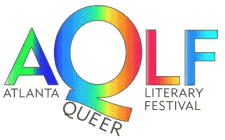
Some wonderful news coming out of Atlanta. The Atlanta Queer Literary Festival (AQLF for short) is building up to being a great event this year.
I spoke with great Atlanta poet and organizer Collin Kelley, who’s on the planning committee for the festival, and they’ve really gone all out to expand their second annual literary festival. He spoke of the desire to have another venue for Queer writers.
The festival will feature Gay, Lesbian, Bisexual, Transgender and Questioning authors, poets, playwrights and more. There will be readings, poetry slams, workshops, signings, theatre events and much more. They’ve asked me to come read and I’m deeply honored to be a part of this auspicious undertaking.
There are a number of poets I’ve heard from who are planning on attending and reading.
The planning group will be announcing the list of invited readers next week. Should be an interesting list.
The dates for the fest are Oct. 15 -19 at various locations to be announced around the city.
Sounds like a festival to add to your Fall calendar!
More info at www.queerlitfest.com
Kay Ryan the new poet laureate
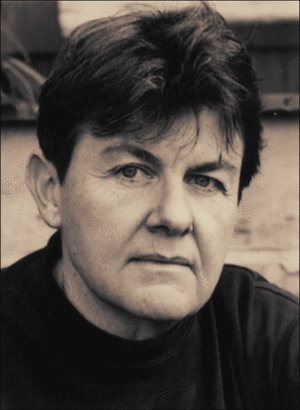 This week the Librarian of Congress, James Billington, announced the selection of Kay Ryan as the next poet laureate of the United States.
This week the Librarian of Congress, James Billington, announced the selection of Kay Ryan as the next poet laureate of the United States.
Some background about the position. First created in 1937 as the "Consultant in Poetry to the Library of Congress," the position did not officially take on the title of "United States Poet Laureate" until 1986 when, by an act of Congress, the position received the title it deserved. A few articles about Ryan have called her the "16th poet laureate" but this is for all practical purposes a ridiculous supposition as the position didn’t change, just the title. Secondly, the position is not chosen by the president. The president has nothing to do with the selection of this laureate. The title, you’ll recall is the Poet Laureate Consultant in Poetry to the Library of Congress of Congress. I feel the need to underline and bold this fact because this myth has been repeated by everyone from The West Wing tv show to a recent idiotic rant in the National Review.
In seven decades the position has been held by poets you’ve probably heard of (Robert Frost, Marianne Moore, Robert Penn Warren, James Dickey and Billy Collins) and poets, depending on your poetic reach, you’ve never heard of (Joseph Auslander, Josephine Jacobsen, Robert Hayden anyone?). I happen to co-curate a reading series here in DC that on two occasions has held readings featuring the work of past poet laureates. We call the readings "Lorettapalooza" as a nod to the popular Lollapalooza music festival and a "lightening up" of most people’s conception of poetry and the work of a "laureate." Dipping into the work of the best poets of over seventy years of American poetry has been a singular pleasure and in its two iterations has made for wonderful evenings of spoken poetry.
The range of poets has been pretty amazing and as I’ve gotten to know the work of the more obscure and forgotten poets it’s been a valuable addition to my own appreciation for the depth of American poetics. The diversity of laureates has also been rather remarkable. The position has been held by over 42 poets in 48 terms. This is because the position has changed names over time and some poets were called to serve under both titles. The fourth poet appointed, Louise Bogan, was a woman, cracking the gender barrier much sooner than in other positions. The position has not been very racially or ethnically diverse. Robert Hayden was the first African-American appointed in 1976. There have never been Asian American, American Indian or Latino poet appointed. I could make a few suggestions to this end if they’d be open to suggestions. They should work on that soon. There have been numerous foreign-born poets starting with Stephen Spender and most recently Charles Simic last year.
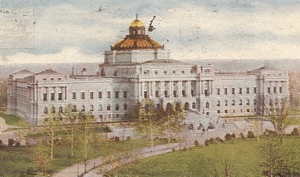 The position has been celebrated as the "catbird seat" of American poetry while others have complained about the position’s vagueness. Elizabeth Bishop hated her time as consultant while Robert Lowell described the position as "neither a librarian nor a Washington official, but something odd, one of the Government’s oversights." Indeed the role of the poet laureate has always been a bit vague and has changed over the years. Originally the position was seen as a real consultantship and the poet actually moved to DC to spend a year (or two years if their appointment was repeated) working at the Library of Congress in a pretty palatial office overlooking the Capitol building. Consultants were expected to oversee the Library’s vast holdings in poetry, to hold readings and to answer any questions about poetry. A congressman wanting to find just the right line from Cicero for his diatribe from the senate floor could call up the office and get some suggestions. Archibald MacLeish, the only poet to hold the position of Librarian of Congress, redesigned the position as a one year position to recognize an excellent poet and provide them with a year free of most constraints in which they could do research on future work. James Dickey gave the position it’s very public face and initiated the practice of inviting multiple poets to read at the library (a common practice today). Sadly poet laureates don’t move to DC anymore. Most hold academic teaching positions and only come to Washington to give their own readings (which launches the season) and also regularly travels to the capitol to introduce their selected poets. In those public readings I have had the pleasure of hearing some wonderful poets — Galway Kinnell, and Charles Simic and Donald Hall (the last two poet laureates). In Washington, people wait to hear who has been selected as laureate and then wait to hear who the laureate will invite to come read. These free readings by these great poets are among the special delights of living in the nation’s capitol.
The position has been celebrated as the "catbird seat" of American poetry while others have complained about the position’s vagueness. Elizabeth Bishop hated her time as consultant while Robert Lowell described the position as "neither a librarian nor a Washington official, but something odd, one of the Government’s oversights." Indeed the role of the poet laureate has always been a bit vague and has changed over the years. Originally the position was seen as a real consultantship and the poet actually moved to DC to spend a year (or two years if their appointment was repeated) working at the Library of Congress in a pretty palatial office overlooking the Capitol building. Consultants were expected to oversee the Library’s vast holdings in poetry, to hold readings and to answer any questions about poetry. A congressman wanting to find just the right line from Cicero for his diatribe from the senate floor could call up the office and get some suggestions. Archibald MacLeish, the only poet to hold the position of Librarian of Congress, redesigned the position as a one year position to recognize an excellent poet and provide them with a year free of most constraints in which they could do research on future work. James Dickey gave the position it’s very public face and initiated the practice of inviting multiple poets to read at the library (a common practice today). Sadly poet laureates don’t move to DC anymore. Most hold academic teaching positions and only come to Washington to give their own readings (which launches the season) and also regularly travels to the capitol to introduce their selected poets. In those public readings I have had the pleasure of hearing some wonderful poets — Galway Kinnell, and Charles Simic and Donald Hall (the last two poet laureates). In Washington, people wait to hear who has been selected as laureate and then wait to hear who the laureate will invite to come read. These free readings by these great poets are among the special delights of living in the nation’s capitol.
Now enters Kay Ryan to the position. I first became acquainted with Ryan’s work through my friend Michael Gushue who sang her praises long ago. I had a chance to hear her last year at the Folger Library and consider it one of the best public readings by a poet I’ve ever attended. The poetry itself was quite remarkable and good. But I was most struck by her attention and care to her audience and to the real appreciation and understanding of the dynamics of public reading. I recall her stopping after reading one of her poems and saying, "I think I’ll read that again. Would that be alright?" This theater filled with hundreds nodded or murmured its enthusiastic assent and Ryan read the poem again. It was a small thing but it struck me that I had never experienced this before. You know, there are times when one needs to hear a poem read aloud twice to get it. To hear the mechanics and the chimes within the lines. Her poems are short wonders and you want to hear them again to really appreciate their beauty. Her work has been compared to Emily Dickinson’s work. I can see that. There’s a sparing use of language in Ryan’s work that is Dickinsonian. But there’s an internal use of hidden rhyme that I’m struck by in Ryan’s work. It’s the sort of poetry that you read and enjoy and then want to read aloud. You want to hear the words come out of your mouth, hang in air and then have the rhymes strike each other. As someone who writes in a free verse form and, truth be told, gets a bit tired from all the yacking of formalist bullies, I take a great delight in Ryan’s work. It’s innovative and not hackneyed (in ways that most formalist poetry pushers work suffers to my ears).
The Washington Post and New York Times‘ stories about Ryan’s selection both talk about Ryan’s long path to notice and success. She seems rather down to earth about the whole thing. She has written in the past with pretty curt dismissal about the professional poetry and writing workshop world. She bears her own bootstraps autodidactic role as a badge of pride and that’s to be applauded in a time of uber-professionalism. But this would all be beside the point if the craft wasn’t so good. I’m very curious to see who Ryan invites to come read. I look forward to those readings. They offer an insight into the laureate’s tastes. I also look forward to hearing this poet read her own work in the Library’s Madison building. It’d be wonderful if Ryan considered spending more time in the capitol. I think she would find a city with a vibrant poetic community willing to engage and support innovative work. I assume it’s largely up to her. But she seems to be enough of a firebrand to make it happen if she’d like it. I should also add that I’m proud to have another GLBT poet be appointed to the position.*** While the New York Times mentioned Ryan’s partner Carol Adair in the article, the Washington Post is to be applauded for writing of Adair’s huge influence in Ryan’s rise in poetry and also for mentioning their recent marriage after being together 30 plus years after the recent California marriage ruling.
Kay Ryan’s poetry:
The Niagara River – 2006
Say Uncle: Poems – 2000
Elephant Rocks: Poems – 1997
***Elizabeth Bishop held the position in 1949 (although her same sex relationships were not known at the time and would be verified after her death), Stephen Spender held the position (although his biography and his back and forth is such a mess he’s probably not worth counting). William Meredith held the position in the late 1970s (his longtime partner, the poet Richard Harteis, has written movingly about their relationship).
George Carlin RIP
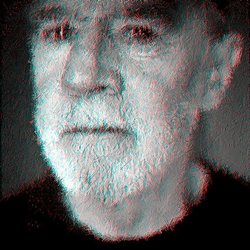 A lot has been written about George Carlin’s passing. He was a brilliant comic but also an astounding wordsmith and a constant champion, in his own way, for the rights of people’s freedom. He was also a fierce cultural critic who loved pointing out the absurdities of dogma, whether political or religious.
A lot has been written about George Carlin’s passing. He was a brilliant comic but also an astounding wordsmith and a constant champion, in his own way, for the rights of people’s freedom. He was also a fierce cultural critic who loved pointing out the absurdities of dogma, whether political or religious.
Since he was a far-ranging cultural commentator, I was curious to see his take on gay people and went searching for any of George Carlin’s takes on Gay people and found an interesting interview he gave to the New York Times about playing one of those "Gay neighbor" roles for the movie "The Prince of Tides."
"He was written as an out-of-the closet Gay," said Mr. Carlin, speaking by telephone recently from Cincinnati, where he was preparing to give a stand-up comedy performance. "The stage direction said ‘flamboyant,’ I think. At any rate, I knew he wasn’t a Marine drill sergeant trying to hide his Gayness. The challenge was how to be a Gay man acting effeminate but not be a cartoon or a stereotype."
That challenge raised touchy questions for a comedian who has made a career out of scathing social and political commentary. Would the actor be playing into the hands of homophobic viewers? "I have a position on that," Mr. Carlin said. "That sort of behavior is part of the reality among some Gay males. At times it’s exaggerated, depending on mood or the company. To banish the behavior is to punish it. Unless the behavior can be seen as O.K., then you’re burying it."
Much easier, Mr. Carlin, said, was Eddie’s comic delivery. "I’ve always admired Gay humor," he said. "It’s bittersweet, bitchy, to-the-point and honest. So that was already in me somewhere."
Carlin also famously took on the absurdity of some of the Catholic church’s positions:
"Catholics are against abortions.
Catholics are against homosexuals.
But, I can’t think of anyone who has less abortions than homosexuals! "
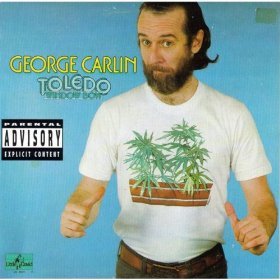 But most stunning of all my finds was an old comedy bit that Carlin did WAY BACK in 1973. It can be found on his Toledo album and is just pretty stunning given the time. Keep in mind, this is five years after Stonewall and still the early 70s. Carlin was headlining huge comedy tours and was at the top of his game.
But most stunning of all my finds was an old comedy bit that Carlin did WAY BACK in 1973. It can be found on his Toledo album and is just pretty stunning given the time. Keep in mind, this is five years after Stonewall and still the early 70s. Carlin was headlining huge comedy tours and was at the top of his game.
On the track called "Gay Lib" Carlin gives his insights into what that means to him at the time and then tears apart the "unnatural" and "abnormal" arguments against homosexuality by first arguing for Gays as an understandable evolution and then (stunningly) giving a description of what certainly sounds like a backroom encounter to argue for its normalcy. Here’s how it went:
"Gay Lib. Now interestingly, here is an attempt by a hooked down and kind of persecuted minority to insist on their place rightfully, and their treatment rightfully, without it having anything to do with ethnic or religion or anything! It’s really an exciting separate part of liberation. …Sometimes we, if we’re younger, we react to that in a way that we’ve been schooled. Then you kinda get your chops, and you get things okay and you understand and it’s all right to be able to talk about that. Here’s what I mean. The word "homosexual," many people who aren’t in the position to having to decide this, they wonder:
"Is homosexuality… Is it normal? Is it natural? I ask you. Is it normal or natural? Is it unnatural and abnormal?"
Now those two words seem to revolve around it. Now let’s look at those words for what they are…
"Natural." Hey. Means "according to nature." Is it according to nature? Well…probably not in the strictest sense because nature didn’t presuppose it. Nature only gave us one set of sexual apparatus. A girl’s got something for the guys, a guy’s got something for the girls. [low laughter in the crowd] As it is now, a homosexual is forced to "share" the apparatus that the opposite sex is using on this person. Certainly if nature was in command there’d have two sets of goodies. So nature was not ready. We leaped past nature again in our sociological development, way down the road ahead of nature.
Is it normal? Normal? Well what’s "normal?" Well, let’s see.. if you’re standing in a room, stripped, and it’s dark, and you’re hugging a person and loving them and rubbing them up and down, and they’re rubbing you, and you’re rubbing together and suddenly the light goes on and it’s the same sex, you’ve been trained to go
"AAIIIAUUGGGAIIIAEAAHHHHHHHH!" (crowd laughs)
But if felt okayy…. So maybe it was normal without being natural. (crowd laughs strongly)
Again, given the times, it was a very pro-Gay acceptance message.
Last night Harry Shearer (another comic genius I love) mentioned Carlin’s brilliance in one of his recent bits called "Modern Man." Seemed an appropriate way of acknowledging Carlin’s passing.
LGBT Writers of Washington Tour
 So today was my second try at leading an GLBT Walking tour of Literary Washington. This time the tour was under the auspices of Beltway Poetry Quarterly and Split This Rock Poetry Festival (the original sponsor of the tour with financial help from White Crane Institute). Inspired by walking tours I’d taken with my friend Kim Roberts, I’d originally developed it for the Split This Rock festival in March. Sadly only two people showed up for that first offering. I think long distance from the festival site on U Street and the early morning hour after long till-2am poetry open mics spelled doom for that tour’s turnout. The two hearty folks that showed up (not counting my darling fere Pete) were great, but I was hoping for more folks. Kim, innately understanding all that went into designing a tour like this, (all the hours spent doing research through biographies, interviewing still living folks from those eras, and searching through old city directories etc) — wisely suggested holding it again in June and offered to sponsor it through Beltway. Split This Rock offered to co-host again and they jointly put the word out through their wondrous communications channels and VOILA! we had over fifteen folks show up to do the reading. Oh, and we had a really wonderful write up in the Washington Blade, courtesy of their arts writer Amy Cavanaugh. Anyway, I was psyched when I saw the very engaged and very diverse crowd of folks who showed up. And poets!!
So today was my second try at leading an GLBT Walking tour of Literary Washington. This time the tour was under the auspices of Beltway Poetry Quarterly and Split This Rock Poetry Festival (the original sponsor of the tour with financial help from White Crane Institute). Inspired by walking tours I’d taken with my friend Kim Roberts, I’d originally developed it for the Split This Rock festival in March. Sadly only two people showed up for that first offering. I think long distance from the festival site on U Street and the early morning hour after long till-2am poetry open mics spelled doom for that tour’s turnout. The two hearty folks that showed up (not counting my darling fere Pete) were great, but I was hoping for more folks. Kim, innately understanding all that went into designing a tour like this, (all the hours spent doing research through biographies, interviewing still living folks from those eras, and searching through old city directories etc) — wisely suggested holding it again in June and offered to sponsor it through Beltway. Split This Rock offered to co-host again and they jointly put the word out through their wondrous communications channels and VOILA! we had over fifteen folks show up to do the reading. Oh, and we had a really wonderful write up in the Washington Blade, courtesy of their arts writer Amy Cavanaugh. Anyway, I was psyched when I saw the very engaged and very diverse crowd of folks who showed up. And poets!!
 [at right, Philip Clarke, Tonetta Landis, Craig Harris and I in front of the Whitman public art project at the Dupont Circle metro stop] The tour itself ambles around Dupont Circle beginning with the circle itself, talking about proto-Gay poets in Washington, DC (Walt Whitman, Natalie Barney) then talked about the queer poets of the
[at right, Philip Clarke, Tonetta Landis, Craig Harris and I in front of the Whitman public art project at the Dupont Circle metro stop] The tour itself ambles around Dupont Circle beginning with the circle itself, talking about proto-Gay poets in Washington, DC (Walt Whitman, Natalie Barney) then talked about the queer poets of the Harlem DC Renaissance: Langston Hughes, Alain Locke, Jean Toomer, Zora Neale Hurston, Richard Bruce Nugent, Angelina Weld Grimke etc. We spent some time talking about the various Radical Writers collectives in DC in the 1970s including the BreadBox collective, the Lesbian Feminist "Furies Collective" (which included and published the work of Rita Mae Brown, Charlotte Bunch, Pat Parker, Willyce Kim, photographer Linda Koolish, June Slavin, Judy Grahn, Lee Lally, and others), the Skyline Faggot Collective, and the GLF collective. I also mentioned the newspapers that began in the early 70s and were vital to publishing much of this new poetry: the Gay Blade ( forerunner to the Washington Blade), Off Our Backs, Furies, Motive magazine and BreadBox.
 It was great to spend some time speaking of those literary collectives that really broke ground in the 1970s. The Furies published some groundbreaking work through their newspaper as did the Skyline Faggot Collective that worked on the last issue of the United Methodist-funded Motive issues. I had a chance to read some poems by a contributor to that historic publication, Perry Brass (who lives in New York now and who will be coming to DC for a reading in the Fall). I also spent some time talking about the Mass Transit reading series of the 1970s that were held at the countercultural Community Bookshop on P Street and featured ground breaking poets (both Gay and Straight) including Ed Cox, Tim Dlugos, Michael Lally, Lee Lally, Beth Joselow, Terence Winch, Tina Darragh, E. Ethelbert Miller, Liam Rector, and Hugh Walthall (who WAS ON THE TOUR!!). Many of these writers are associated with New York City when in actual fact they were from and began their work in Washington. We also covered what I’m calling the Second Black Gay Renaissance of the 1980s and early 90s (the "first" meaning the aforementioned Harlem DC Renaissance writers). The poets of this second era included Essex Hemphill, Craig Harris, Larry Duckette, Wayson Jones, Tania Abdulahad, Gideon Ferebee, Papaya Mann, Michelle Parkerson, Garth Tate and others. We stopped at a location of one of Essex Hemphill’s readings and listened to archival audio of Hemphill reading his "Black Beans" poem.
It was great to spend some time speaking of those literary collectives that really broke ground in the 1970s. The Furies published some groundbreaking work through their newspaper as did the Skyline Faggot Collective that worked on the last issue of the United Methodist-funded Motive issues. I had a chance to read some poems by a contributor to that historic publication, Perry Brass (who lives in New York now and who will be coming to DC for a reading in the Fall). I also spent some time talking about the Mass Transit reading series of the 1970s that were held at the countercultural Community Bookshop on P Street and featured ground breaking poets (both Gay and Straight) including Ed Cox, Tim Dlugos, Michael Lally, Lee Lally, Beth Joselow, Terence Winch, Tina Darragh, E. Ethelbert Miller, Liam Rector, and Hugh Walthall (who WAS ON THE TOUR!!). Many of these writers are associated with New York City when in actual fact they were from and began their work in Washington. We also covered what I’m calling the Second Black Gay Renaissance of the 1980s and early 90s (the "first" meaning the aforementioned Harlem DC Renaissance writers). The poets of this second era included Essex Hemphill, Craig Harris, Larry Duckette, Wayson Jones, Tania Abdulahad, Gideon Ferebee, Papaya Mann, Michelle Parkerson, Garth Tate and others. We stopped at a location of one of Essex Hemphill’s readings and listened to archival audio of Hemphill reading his "Black Beans" poem.
 [At right: This bus just called out for photographic documentation] Along the way we stopped to see some of these writers’ homes and hear some of their poems recited. And as in Hemphill’s case, on a few occasions we listened to archival audio recordings of the poets reading their own work. I ended the tour where we began, in Dupont Circle, hearing a recording of Allen Ginsberg reading his poetry at the very first Gay March on Washington in 1979. He read "The Weight" and a beautiful little gem of a poem on Gay rights that I have never seen in print in any of his published books. A perfect ending to a very nice walking tour.
[At right: This bus just called out for photographic documentation] Along the way we stopped to see some of these writers’ homes and hear some of their poems recited. And as in Hemphill’s case, on a few occasions we listened to archival audio recordings of the poets reading their own work. I ended the tour where we began, in Dupont Circle, hearing a recording of Allen Ginsberg reading his poetry at the very first Gay March on Washington in 1979. He read "The Weight" and a beautiful little gem of a poem on Gay rights that I have never seen in print in any of his published books. A perfect ending to a very nice walking tour.
 The response was very positive and encouraging to me to say the least. The folks on the tour were so engaged and many shared additional information that enriched the experience (a few were present at some of the events and added information that’s invaluable). Kim said she enjoyed it, and as I consider her an expert on these tours) that meant the world to me.
The response was very positive and encouraging to me to say the least. The folks on the tour were so engaged and many shared additional information that enriched the experience (a few were present at some of the events and added information that’s invaluable). Kim said she enjoyed it, and as I consider her an expert on these tours) that meant the world to me.
[at left, Joseph Ross, me, Kim Roberts, L. Lamar Wilson, and Craig Harris in front of the site of the old Gay Community Building on 21st Street] A few people weren’t able to do the tour and sent their regrets with the hope to do it "next year." When I heard that at the beginning of the tour I figured it was hopeful thinking, but now, I think it might be worth considering.
Hugh Walthall was nice enough to give me a copy of his book ladidah and Beth Joselow’s The April Wars which he published in 1983. Treasures! All in all a very satisfying afternoon.
PFLAG Parents ROCK!
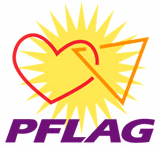 So it’s Pride month and if you take part in a Pride March or Festival you’ll probably see alot of the usual groups there. Dykes on Bikes, Drag Queens and of course PFLAG. After you’ve been to a few of these the groups can tend to blend together or lose their importance in one’s mind. But I saw a great video today (SEE BELOW) that reminded me of the strength of one of the oldest GLBT ally groups.
So it’s Pride month and if you take part in a Pride March or Festival you’ll probably see alot of the usual groups there. Dykes on Bikes, Drag Queens and of course PFLAG. After you’ve been to a few of these the groups can tend to blend together or lose their importance in one’s mind. But I saw a great video today (SEE BELOW) that reminded me of the strength of one of the oldest GLBT ally groups.
PFLAG, Parents, Family & Friends of Lesbians and Gays, is a group I’ve known about for years but this video just really brings their great work to life. This amazing video is just a conversation with a number of folks who came down to a workshop being run by the right-wing Christian "ex-Gay" group "Love Won Out." They didn’t come to protest. They came to serve as a witness to all those going in to the church, First Presbyterian Church of Orlando Florida (further proof that anti-Gay hate isn’t just in Evangelical Christian and Baptist churches but also a blight of once "mainline Protestant denominations). In the video they talk about why they’re there but also how they’re there to show the Gay people walking into the conference that parents can and do love their Gay kids. Sounds simple, but there are so many people who need that kind of visible support.
Rene Sanchez: "We are here to show the parents who are coming to the [ex-Gay] "Love Won Out" activity that attempting to change their children’s sexual orientation is not only unproductive but could be even dangerous. There’s no reason at all. We stand here as a role-model. There’s no reason at all to attempt to change our children’s sexual orientation. God gave them to us that way, we accept them that way and we love them unconditionally."
I know when my partner came out his mother got involved with PFLAG in her local town and it helped with his connecting with other parents trying to find a way to love their kids. The old saying I learned in counseling classes that "when one comes out of the closet, their family goes into the closet" and need help figuring it all out is important to remember. In this situation its so important to have peers that can help them understand their are loving and sane alternatives to the hateful, anti-Gay ignorance that’s perpetuated by the majority of religious institutions (and yes that’s is most definitely the understanding that the majority or religious groups peddle). PFLAG parents provide that needed alternative viewpoint:
Minerva Villafane: My name is Minerva V. Villafane and I’m here to support parents because I think they need a loving option to accept their children the way they are.
I have to say that the diversity of parents in the video is inspiring and while some of the segments are searing, it is lovely to see all these parents standing with their children. Some of these parents know the VERY HIGH costs of homophobia. Not only misery and self-hatred, but sometimes even death. Their witness is so important to ending this kind or insanity:
Olga Kennedy: My name is Olga Kennedy and I’m from Greenville, South Carolina. My son Sean was murdered last year in a hate crime. The person hated him so much even though he didn’t know him. So I go out and come to these things to let people know people don’t choose this lifestyle. God knows people before they are born and God is not wrong… These ministries do such damage to children. I have a stepson who has gone through this program and has suffered emotionally for years because of it.
I was in love with the video a few minutes in but found it got better as it continued. Good for them and good for their kids! Watch the whole video and get a glimpse at these strong loving allies standing and speaking at the front lines of the struggle for equality.
For more information on PFLAG, visit their website at www.pflag.org
Clinton Supporters & the Fall Election
On his Sirius satellite show today Michelangelo Signorile spoke strategy with a Gay Clinton supporter. It’s a telling exchange about some of the thinking out there about this election and some of the more hidden hesitation/fear in some. Signorile makes great points clarifying the situation for the caller.
The Laws of Attraction
Hmm…. attraction at the most physical level:
I especially love Carbon’s snaps and that crazy zapping electricity.

